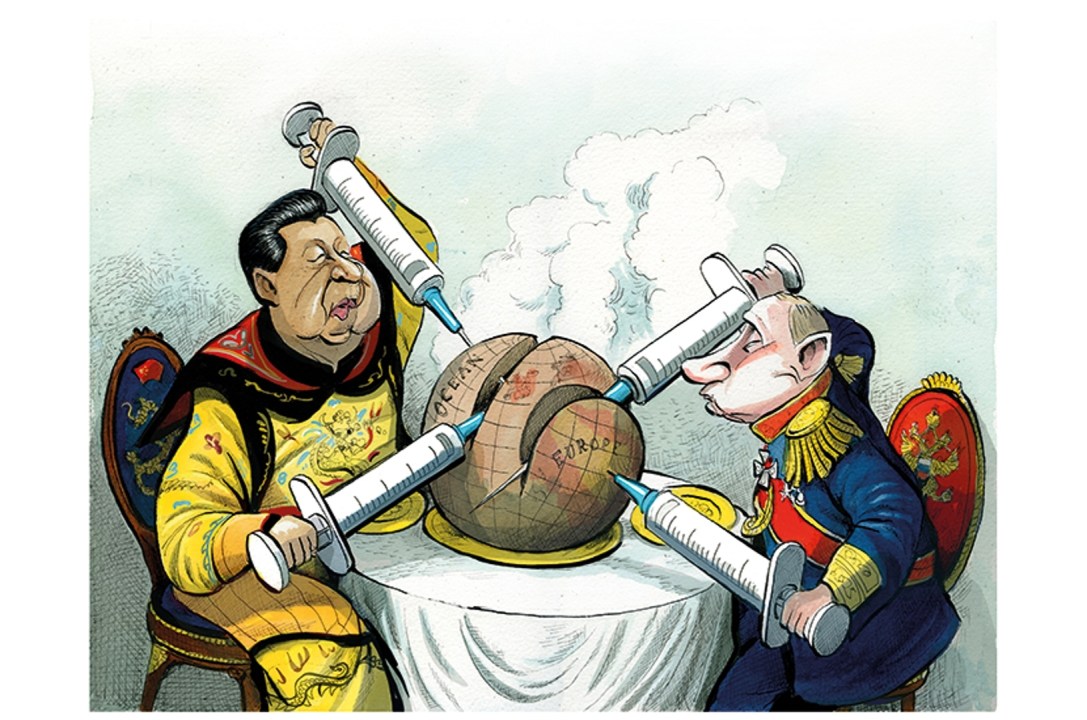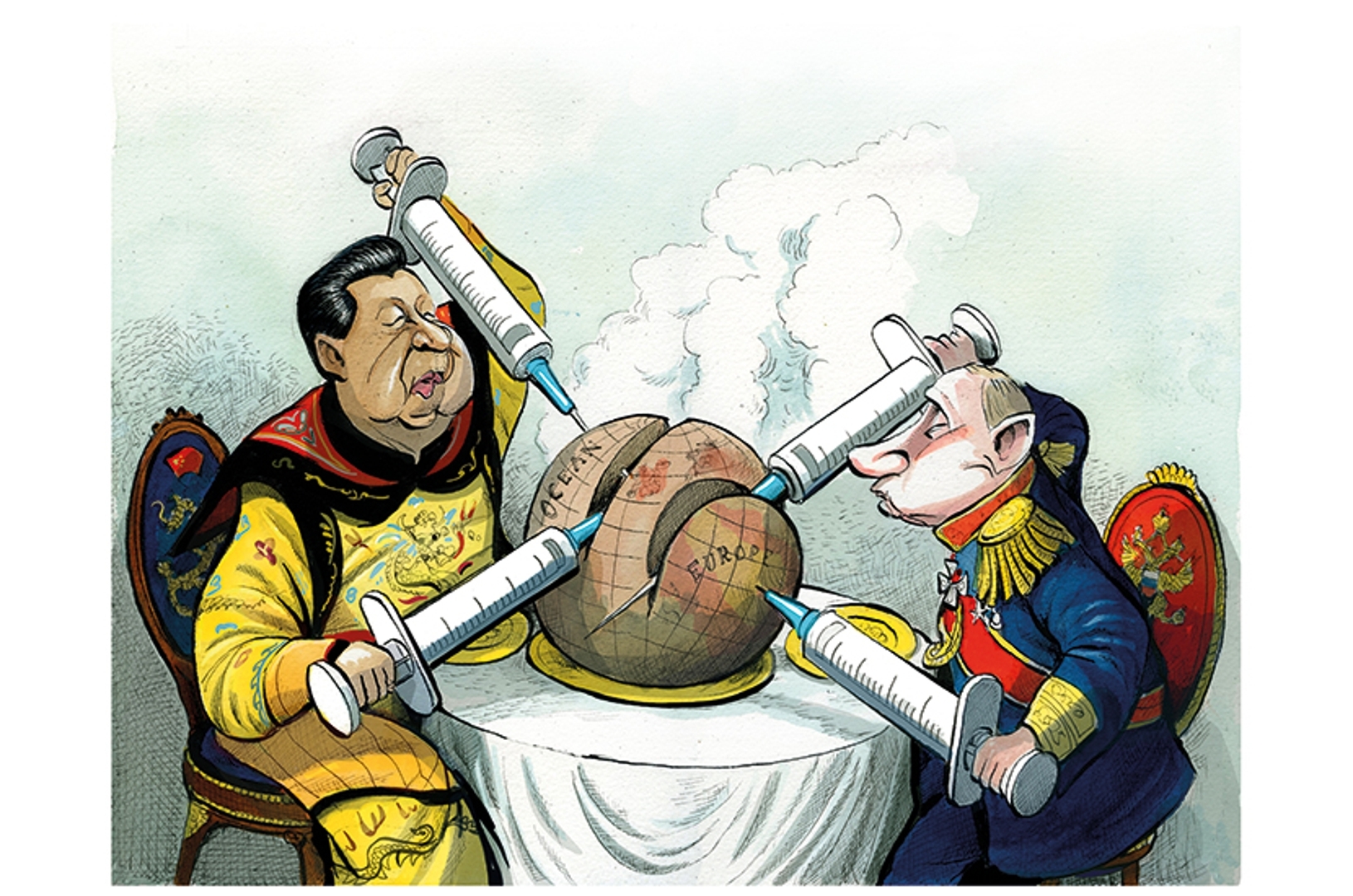On Monday, in their first bilateral summit, Joe Biden will meet (virtually) Mexico’s President Andres Manuel Lopez Obrador. Among other things on the agenda, Lopez Obrador is expected to ask Biden to share America’s vaccines with his country. With 186,000 deaths, Mexico has one of the world’s highest Covid-19 death tolls and it desperately needs these jabs. After Mexico’s Pfizer supply dried up, it has had to rely on Russia’s Sputnik V vaccine, as well as China’s Sinovac and CanSino (which was developed by the Chinese military). Could America relieve this pressure?
It doesn’t appear so. Some reports suggest that Obrador will offer to repay any American vaccines with Mexico’s own supply later in the year, but even so, Biden is expected to say, ‘America First’.
It’s an attitude reflected across much of the West — the goal of western countries has been to inoculate their own populations, then start sharing. This leaves poorer countries — even long-term allies — with little option but to turn to China and Russia. Across the world, recipients of Beijing and Moscow’s vaccines are loudly stating their gratitude, while the benefactors are making sure to reap the soft power rewards. It’s a game that the West has been slow to come to, but as Dominic Lawson recently wrote in the Sunday Times, ‘our aid should be openly and without embarrassment aligned with our geostrategic objectives’.
It’s not just Mexico: over the weekend Hungary’s Viktor Orban became the latest world leader to be inoculated with Sinopharm. In the Philippines, where 600,000 donated Chinese jabs recently arrived, President Duterte said last week: ‘when everything has settled down, I intend to make a short visit to China to just shake hands with President Xi.’ The Czech Republic has joined the queue for Russia’s Sputnik V. President Milos Zeman is also considering Sinopharm, saying that ‘vaccines have no ideology’.
After Beijing and Moscow’s vaccine diplomacy head start, Boris Johnson raised the issue of sharing vaccines with the developing world at a recent virtual G7 summit. But the suggestion fell flat — while more money was pledged to Covax, the WHO’s developing-world vaccine scheme, other G7 countries were clear that their own populations still came first.
It’s not that the West is sitting on its hands — western countries are the biggest donors to Covax. Washington has pledged £2.8 billion over the next two years; Germany £700 million, and the UK £500 million. The problem is that vaccines distributed by Covax are self-defeatingly anonymous — the first shipments started arriving in Ghana and the Ivory Coast last weekend, but only in the small print of the surrounding reporting can you see that over one million of these were Oxford-AstraZeneca jabs. The credit was split on a global level.
The thinking may be that global donations are more effectively and fairly distributed than bilateral deals. Besides, charity shouldn’t be done in anticipation of any thanks. But in the realpolitik world of vaccine diplomacy, such noble considerations may be misplaced. The UK’s department for international aid, when it existed, used to label British aid with the Union flag. Would a greater effort to associate the Oxford jabs with the UK be such a bad idea? Given the headway Russia and China are making, western leaders should be unafraid to play the same game. It may be imperative for how the world order looks in the coming years.








Comments